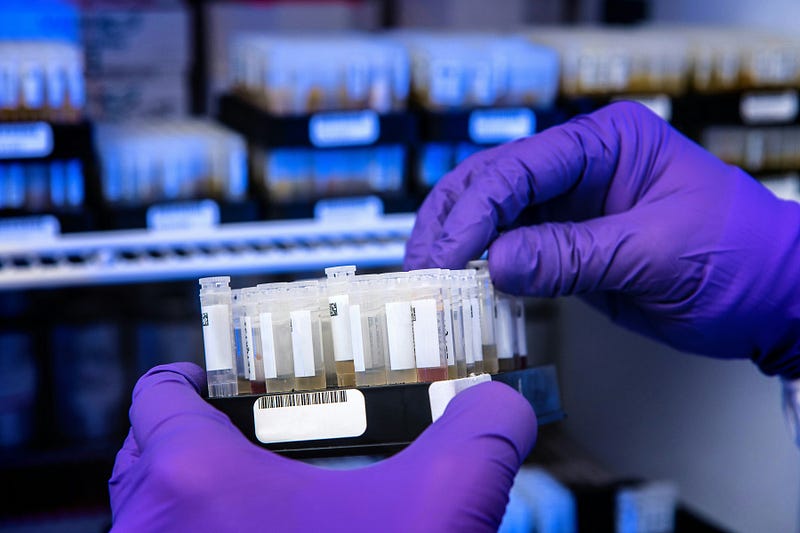The Surge of Food Sensitivity Testing: Genuine Science or Deception?
Written on
Chapter 1: Understanding Food Sensitivity Testing
Food sensitivity testing has gained traction in recent years, as individuals search for explanations for unexplained health issues like bloating, fatigue, and skin irritations. These tests claim to pinpoint foods that may be responsible for a range of ailments, suggesting a straightforward remedy: eliminate the identified foods and feel better. However, is the solution truly that simple? The growing popularity of food sensitivity testing has ignited a debate among healthcare professionals, with some cautioning that these assessments may lean more towards deception than scientific validity.
Section 1.1: What Are Food Sensitivity Tests?
Food sensitivity tests assert that they can identify foods causing adverse reactions in the body, but not in the traditional sense, as seen with allergies to items like peanuts or shellfish. Instead, these tests often focus on delayed responses, which can take hours or even days to appear. The typical procedure involves drawing a blood sample to evaluate levels of Immunoglobulin G (IgG) antibodies against specific foods. Elevated IgG levels for a certain food are then interpreted as an indication of sensitivity to that food.
The underlying premise is that by detecting and eliminating foods that trigger these antibodies, individuals may alleviate symptoms such as digestive discomfort, headaches, fatigue, and even joint pain. This concept appears appealing, particularly for those struggling to discover the source of their symptoms. Nonetheless, a major concern exists: the scientific basis for these tests is highly contentious.
Subsection 1.1.1: The Science—or Lack Thereof—Behind IgG Testing

The validity of using IgG antibodies to diagnose food sensitivities lacks robust scientific support. Numerous experts contend that the presence of IgG antibodies is a natural aspect of the immune response, rather than an indication of problematic foods. These antibodies are generated in response to food exposure, and rather than suggesting intolerance, they often signify that the body has developed a tolerance to those foods.
Renowned health organizations, such as the American Academy of Allergy, Asthma & Immunology (AAAAI) and the European Academy of Allergy and Clinical Immunology (EAACI), have asserted that IgG testing for food sensitivities is neither reliable nor valid. They caution that these tests are more likely to lead to unnecessary dietary restrictions instead of offering meaningful guidance on which foods to avoid.
Section 1.2: The Risks of Unnecessary Dietary Restrictions
One of the significant drawbacks associated with food sensitivity testing is the risk of imposing unnecessary and potentially harmful dietary restrictions. When individuals receive results indicating sensitivities to multiple foods, they may drastically eliminate entire food groups from their diets in hopes of improvement. This can result in nutritional deficiencies and lead to a limited, monotonous diet that adversely affects overall health.
Moreover, the psychological ramifications of adhering to a restrictive diet can be substantial. Constantly worrying about dietary limitations can result in anxiety, stress, and a detrimental relationship with food. For some, this can evolve into disordered eating patterns, where the focus on avoiding specific foods overshadows the enjoyment and nourishment that food should provide.
Chapter 2: The Placebo Effect: A Real Yet Misleading Relief

It is crucial to acknowledge the placebo effect, which can significantly influence how individuals interpret the results of food sensitivity tests. When someone believes that avoiding certain foods will lead to improvement, they may genuinely start to feel better, even if the eliminated foods were not causing any harm. This psychological response can reinforce the conviction that the test results were accurate, despite the lack of scientific backing.
While the placebo effect is genuine and can provide temporary relief, it fails to address the actual underlying causes of symptoms. Consequently, those who rely on food sensitivity tests may miss out on receiving accurate diagnoses and treatments for their health concerns, potentially extending their discomfort or even exacerbating their condition over time.
What Should You Do Instead?
If you're facing symptoms that you suspect may be food-related, it's essential to take a critical approach and seek guidance from qualified healthcare professionals. Instead of depending on food sensitivity tests, consider these alternative steps:
- Maintain a Food Diary: Keep track of your meals and how you feel afterward. This can help identify patterns and potential triggers without resorting to costly and potentially unreliable tests.
- Consult with a Registered Dietitian: A dietitian can assist you in pinpointing possible food-related issues through a structured elimination diet, systematically removing and then reintroducing specific foods to observe your body's reactions.
- Get Tested for True Allergies and Intolerances: If you suspect a serious reaction to a specific food, it is vital to undergo proper testing for food allergies or intolerances, such as lactose intolerance or celiac disease. These tests are scientifically valid and can yield more dependable results.
- Consider Other Causes: Bear in mind that not all symptoms are food-related. Digestive issues, fatigue, and other symptoms can stem from various causes, including stress, sleep disorders, and underlying medical conditions. A healthcare provider can help you explore all potential factors.
The Bottom Line
While food sensitivity testing may appear to offer a quick solution to complex health challenges, it is crucial to approach these tests with skepticism. The scientific foundation is weak, and the risks—from unnecessary dietary restrictions to missed diagnoses—are very real. Instead of relying on unproven methods, pursue evidence-based strategies to understand and address your health issues. Ultimately, the path to good health lies not in avoiding foods based on questionable tests, but in comprehending your body and nurturing it in a balanced, informed manner.